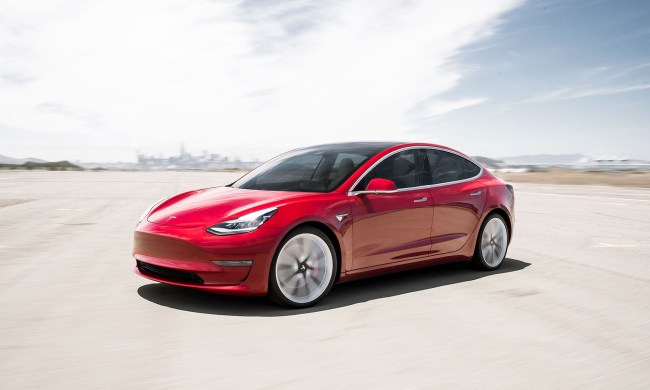Nissan is recalling 394,025 vehicles to fix a potential brake fluid issue that could cause a fire.
In a document sent to the National Highway Traffic Safety Administration (NHTSA), the Japanese carmaker said that a pump seal could wear out, resulting in a leak of brake fluid. In such a case, the anti-lock brake system (ABS) warning light should show on the instrument panel.
“If the warning is ignored and the vehicle continues to be operated in this condition, the brake fluid leak may potentially create an electrical short in the actuator circuit, which in rare instances, may lead to a fire,” Nissan said in the document.
The recall affects four models, namely the Nissan Maxima (model years 2016-2018), the Nissan Murano (2015-2018), the Nissan Pathfinder (2017-2019), and the Infiniti QX60 (2017-2019).
The issue is deemed serious enough for Nissan to warn affected owners to park their vehicles out in the open and away from buildings if the ABS warning light shows for more than 10 seconds. In such a case, the owner should contact Nissan or Infiniti roadside assistance to have the vehicle towed to a dealer.
Owners of affected vehicles will be contacted by Nissan starting in December 2019. Dealers will begin by replacing the faulty pumps, with more work expected to be carried out in the summer of 2020 when additional parts become available, the automaker said.
All of the necessary work will be carried out free of charge.
Nissan’s document fails to state whether the issue has caused any fires or injuries up to now. We’ve contacted the automaker and will update this piece if we hear back.
Nissan recalls
This month’s recall follows others in 2016 and 2018 over the same issue, which affected 130,000 and 215,000 cars, respectively.
It also comes just two months after Nissan recalled 1.2 million vehicles to install a software update for the rearview camera that resolved an issue with the device’s brightness levels, and just over a year after it recalled 165,000 vehicles regarding key-ignition switches that could wear out over time, and which in extreme cases could cause the engine to shut off while the vehicle is in motion. There was extra concern in this particular case as it could also have deactivated the airbags.


